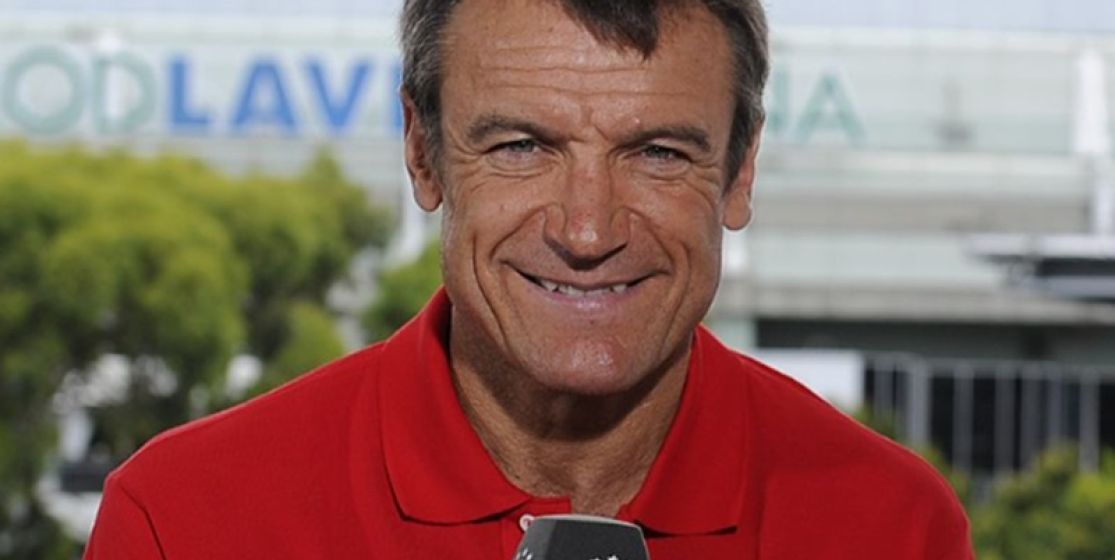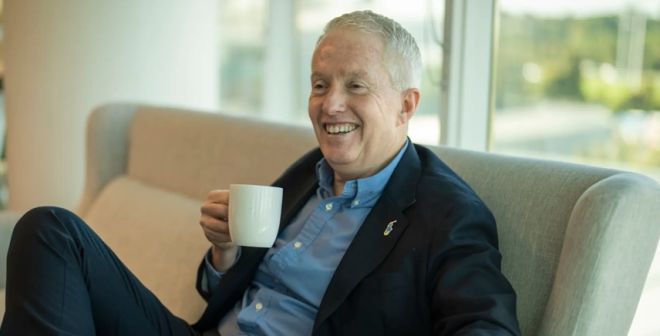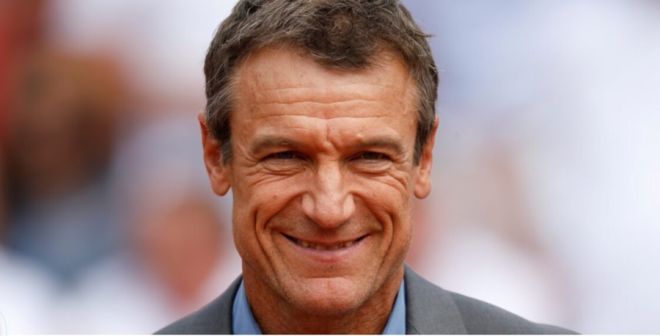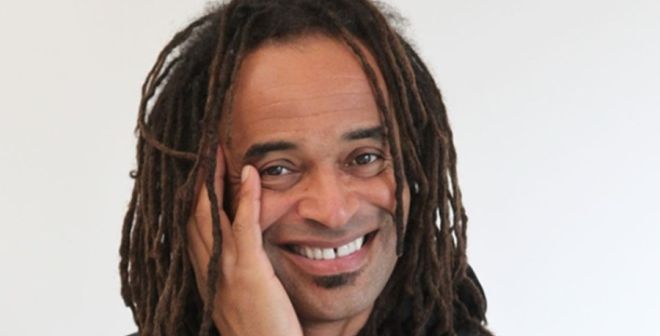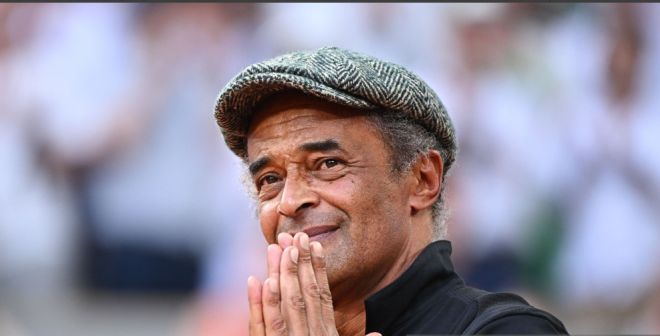Q. Mats, lovely to talk with you again and good to be with you again. I’d like to start by asking what would you pinpoint as the highlight of your career?
MATS WILANDER: Well, there is a couple of situations that I was in, I think to win the French Open as a 17‑year‑old was most important victory for me, because it sort of catapulted me into the top 10 in the world. And I won my first Grand Slam. So that was probably the most important one.
In terms of performance, in terms of the level that I played at, was 1988, US Open. I beat Ivan Lendl who was World No.1 at the time. Beat him in five sets in five hours. I got the World No.1 ranking because of it, and I don't think I have ever played a better, more important match.
Because beforehand, I thought I had a chance to win it, whereas at the French Open in 1982, it was all surprise after surprise after surprise, the fact that I won the tournament.
Q. My follow‑up question was actually going to ask if there was a particular match that stands out the most and why, or maybe a favourite. So, certainly from what you have just said, it would be that 1988 US Open final against Ivan?
MATS WILANDER: Yeah, it was my most favourite match to play, as well. I had some trouble against Ivan for a few years when he was beating me, especially on hard courts, and in this particular match, I felt like I had a really good chance as I was not totally under pressure as Ivan, so that wasn't going to be a problem.
He was going to overpower me, but I figured out way early on to hit a bunch of slice backhands, especially to his forehand, which was a huge weapon in our day, Ivan Lendl's forehand. It was probably the biggest weapon that we had in the '80s.
I was able to stay away from him hitting winners, and I came to the net I think more than a hundred times. So, I completely changed my game. It wasn't planned to happen. It just happened early in the match, and I realized this may be working. At least I'm not getting beaten badly.
So, I think that's my most favourite match both tactically, technically, and then the importance of playing for the World No. 1 ranking.
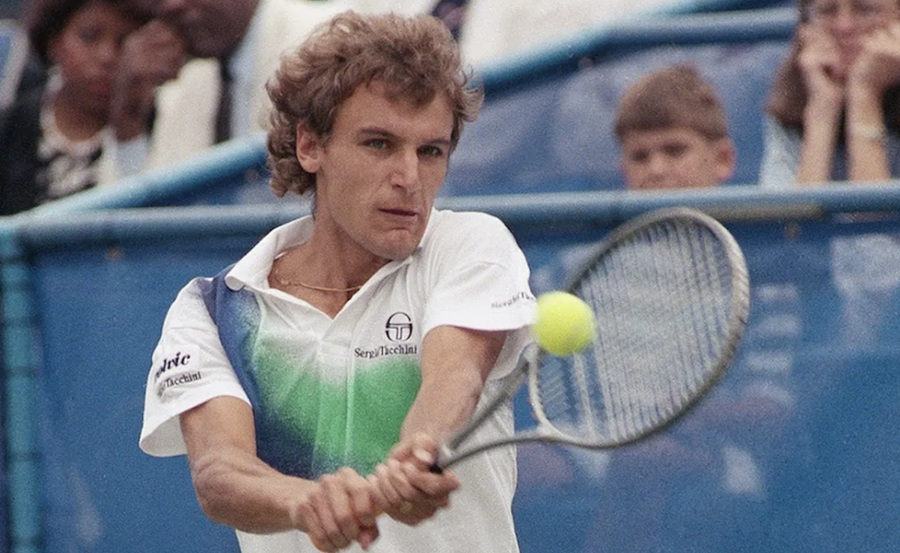
Q. As you said, you got the World No.1 ranking, but you also got the No.1 ranking in Greenwich, Connecticut, didn't you? Both of you lived there, in Greenwich, Connecticut.
MATS WILANDER: Yeah, we both lived in Greenwich, Connecticut. In fact, I moved to Greenwich from New York City, the island of Manhattan in 1987. I actually took advice from Wojtek Fibak who used to be a coach and hitting partner of Ivan Lendl, and they said that you should move to Greenwich, Connecticut, the first town outside of New York state, for financial reasons, you should be there, it's a beautiful spot.
We practiced there a couple of times, but he used to beat me so badly in practice that I didn't really want to do that. But yes, we joke all the time that I became Greenwich No.1 at the same time as World No.1.
No, he really deserved to be the Greenwich No.1. He was there the longest. He was World No.1 for longer than me, so he will always have that trophy, Ivan.
Q. That's funny. 1988, as you were just saying, was really a phenomenal year. You win three of the four majors and reach the quarterfinals of Wimbledon. It was the second or third time in a row you reached the Wimbledon quarterfinals. What did it feel like at the end of that year? Because that leads me to another question, which I'll come to in a second, but when you sat back, year's end in 1988, did all those sort of memories come flooding to you?
MATS WILANDER: Yeah, you know, my year ended before the end of the year, so to speak. It really ended right after the US Open. A couple of weeks after the US Open was when I was having the most fun with being the World No.1. I think I was very proud at the time. I worked extremely hard to get there.
As you mentioned, I won three majors. I also won Cincinnati, won the tournament in Miami. So, I just had an absolutely brilliant year, and especially on surfaces that I hadn't practiced, which was hard courts, which was very special.
But by the time December 31st rolled around, I was already not No.1 in the world in my mind. I was seeded No.1 at the Australian Open in 1989, but I lost a little bit of confidence. Sort of felt like I had a target on my back, which I'd never had before. So, I don't think I did a great job dealing with being World No.1.
But when you look at how the players of today deal with it, you just wonder, how come I couldn't do that? But these guys are very special. The Big 3 are very special. Jannik Sinner and Carlos Alcaraz are extremely special. They love being out there, they're taking it day by day, match by match. I wasn't able to do that.
Q. So, it didn't really matter to you after that?
MATS WILANDER: No.
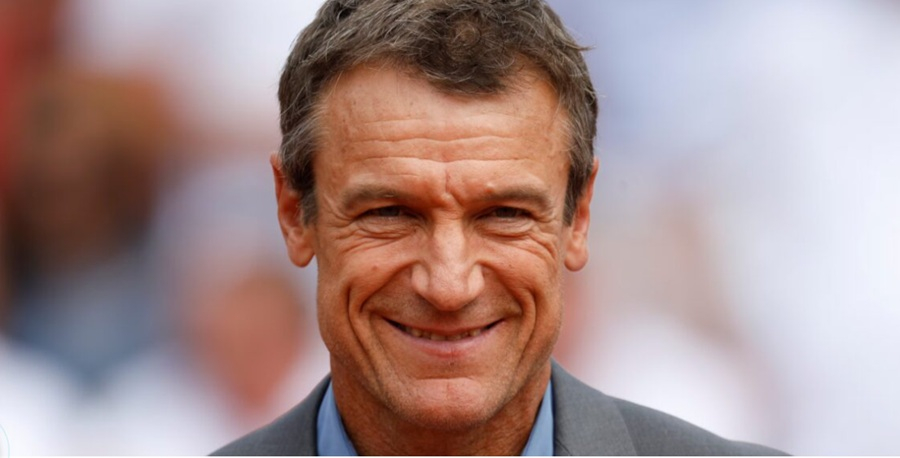
Q. I guess in one sense things started slipping a little bit after 1988, and how much of that really was a case of been there, done that? I have achieved so much and pretty much everything?
MATS WILANDER: You know, a lot of things happened to me there, 1987, '88, '89. I got married to my now wife, Sonya. We've been married nearly 40 years. That took up a lot of my time in a good way, and I played some of my best tennis for a couple of years, but then it felt like I wanted to start a family. My dad got sick with a very severe form of lymphoma, cancer, passed away about a year and a half after I was World No.1, and it just didn't seem like tennis was that important for a moment.
And the moment goes very far. A moment when you are a professional tennis player, that's two years. Suddenly two years are gone, and I don't know what on earth happened. Then I tried to come back. I did okay when I came back, but nothing like I was in the '80s, or when I started playing again in the '90s. But I had as much fun being ranked 41 in the world as I did being ranked No.1 in the world, to be honest.
Q. Just recently I spoke with Yannick Noah as part of the same series I'm talking to you on, WeAreTennis.com, and he was making comments or points about there is still a connection that he has with yourself, with Johnny Mac (McEnroe), with Bjorn (Borg), et cetera. Do you feel the same way? How much do you enjoy that?
MATS WILANDER: Yeah, I feel exactly the same way. In fact, I think the older we get, the closer we get in terms of the friendship. I think we all realize how special a time it was to be competing against one another.
But most of us also realized that we really are friends. Down below everything, we are really friends. That's the most important part.
Then we were able to put that aside and compete very hard, and for the biggest titles in the world, but I think now, lately, when you see somebody, you meet them again, you realize how special everybody is because of what they have achieved in our sport. Not saying as normal human beings we're not special, but in our little world, we are special. I think the friendship is as such.
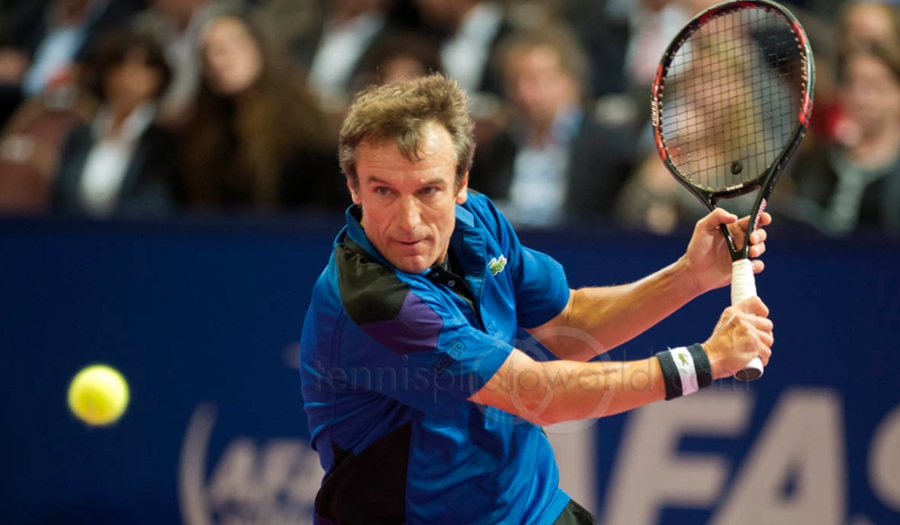
Q. You used the word "special," and everybody keeps talking about the era of the Big Four, Rafa (Nadal), Roger (Federer), Novak (Djokovic), Andy (Murray), and then there was also the (Pete) Sampras ‑ (Andre) Agassi era, et cetera. But what you were part of, that was incredibly special, wasn't it? When you look back, Johnny Mac, Ivan, you, Boris (Becker), Stefan (Edberg), (Guillermo)Vilas, it was an incredible era.
MATS WILANDER: It was very special. I think I realize that as time passed on. I think the reason it was special, first of all, there was a lot of contrast of styles. Obviously, you had John McEnroe, Stefan Edberg, Boris Becker, Pat Cash, guys that came to the net all the time, and then you had me and Ivan trying do passing shots.
Jimmy Connors was still part of that, even though he's a few years older than me. I think you can nearly throw Bjorn Borg in there, but he was part of the McEnroe and Connors era, of course.
I think the contrast of style was really important. I think the contrast of personalities came out as well, and a lot had to do obviously with Johnny Mac and Jimmy Connors, because they brought something completely different to the table. Then you had the Ice Man, Bjorn Borg, and I was pretty calm, in a way.
I think that was fun. But the most important part of I think the '80s generation is that we all won a similar number of majors. I think Jimmy Connors won eight of them, McEnroe won seven, I won seven, Lendl won eight, Edberg I think won six, Becker six. We shared all of those tournaments. To us, we came to a major, and, oh, I'm going to win this, I feel like I'm the favorite here. Whether you were ranked 1 in the world or 4 or 5 in the world, you felt like you went in with unbelievable confidence, and hey, I can win this.
I don't think since the Big 3 started winning everything, I don't think we had that same thing, and certainly not today.
Q. Would you like to have played in the eras that followed the one that you were prominent in? And I'm talking Pete, Michael (Chang), Andre, and then obviously Roger, Rafa, et cetera?
MATS WILANDER: You know, I think that my personality suits a slower game, to be honest. I'm not a big risk taker. I wasn't when I was playing tennis. And I feel like today you have to be a bit of a risk taker, have to play unbelievably aggressive.
I think when Roger came up, he was very aggressive, but you didn't have to play quite as aggressively. I think I would have been better off in that era with Lleyton Hewitt, and I think I would totally liken myself to someone like Andy Murray quite a bit. If I have to relate to somebody, I think I relate to the way he plays tennis.
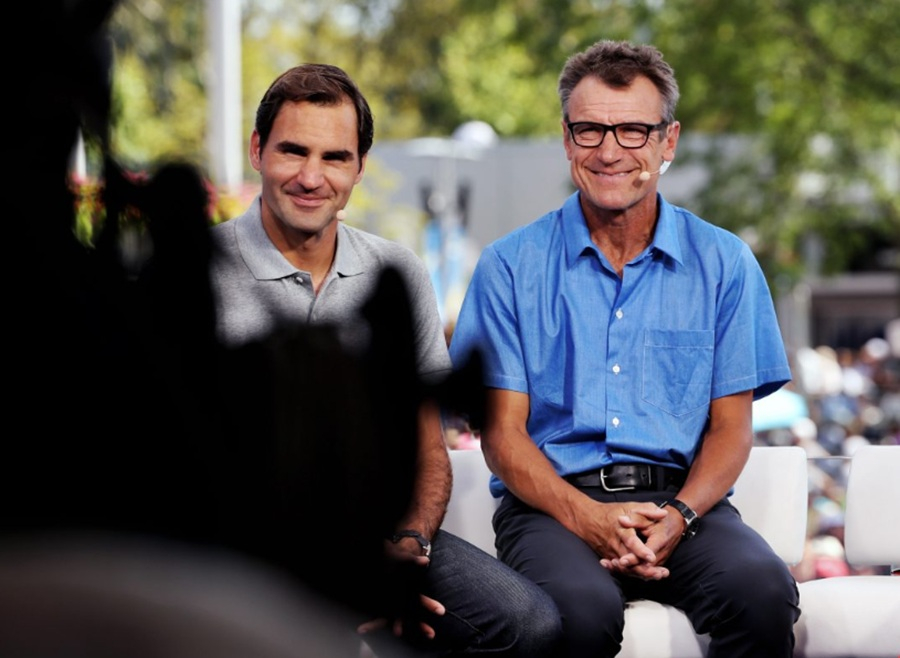
But then now they have taken a step in the next direction, which is just faster and harder, and I'm not sure my mentality would have suited that; would have been good for this kind of tennis.
I would have loved to have challenged myself. I think anyone that has become a great champion in any generation, I think they would have done exceptionally well in every generation, to be honest.
Q. When you look back, do you think everything came a bit fast for you? One minute, you're playing a junior event on the back lot of a television studio in Sydney with Wally (Masur) and Cashie and Joki (Joakim Nystrom), and the next thing you're Roland Garros champion.
MATS WILANDER: Yeah, definitely came too fast too soon. I think so. I think that I was very mature on the tennis court in terms of my match temperament. I think I was so used to winning against the same age group as me, but also against older men when I was very young. So nothing seemed impossible to me. But it came, yes, it came very fast.
(But) I'm not sure you can look at it like that. I had seven, eight years that I was part of the top of the world ranking, and I was winning majors in pretty much every year for seven years. I won seven in seven years.
But I think, yes, I could have taken maybe a little longer at the top if I wouldn't have won, but then again, maybe then nothing would have happened. So, I don't think you can look back on it. I think everybody that is at the top, if you have more than seven, eight years at the very top, you are extremely special, and that's obviously what the Big 3 have done. But if you look at Bjorn Borg or Johnny Mac, they also had careers that sort of lasted seven, eight years at the top.
So, I don't think I'm an exception to the rule when it comes to being at the top for seven, eight years.
More information about
Players

Novak Djokovic

Rafael Nadal

Jannik Sinner

Andy Murray

Carlos Alcaraz
 Tennis Legends
Tennis Legends

Andre AGASSI

Mats WILANDER

Pete SAMPRAS

Bjorn BORG

Jimmy CONNORS

Guillermo VILAS

John McENROE

Stefan EDBERG

Roger Federer


